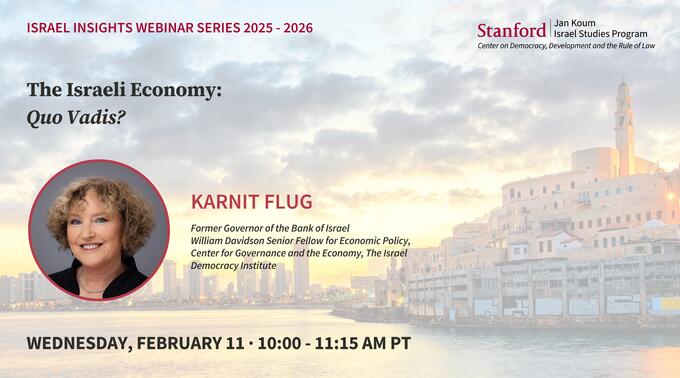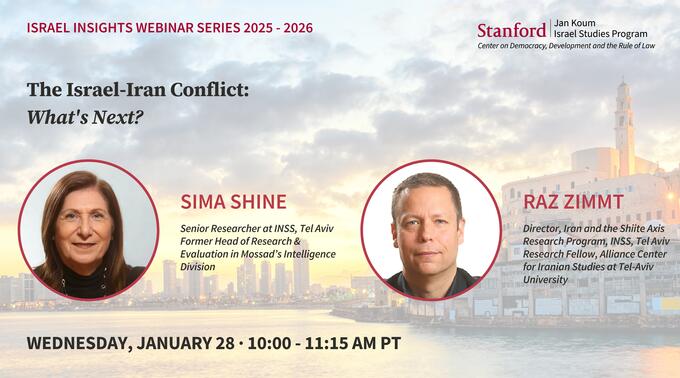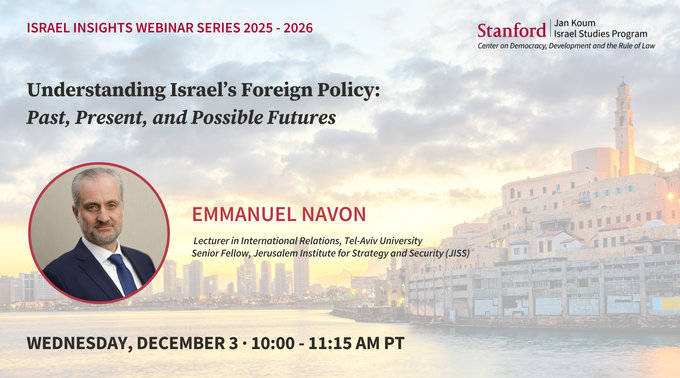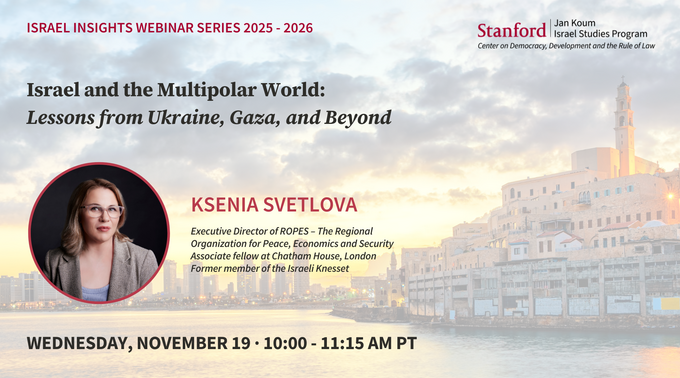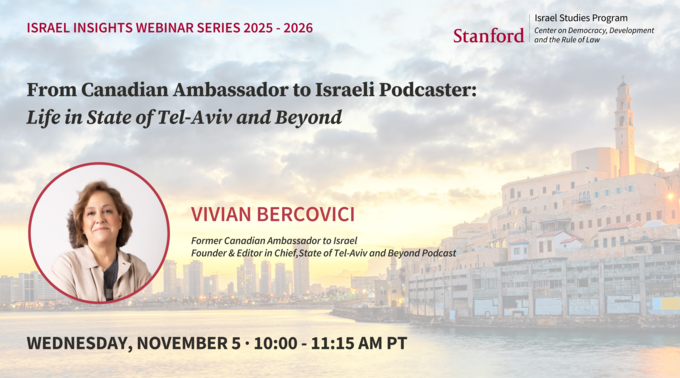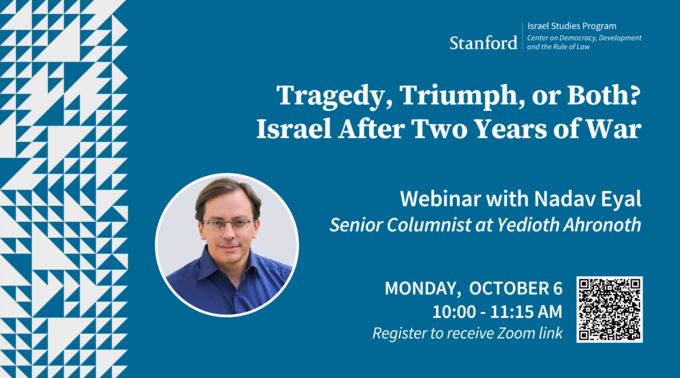Israel Insights Webinar with Oded Ailam — Hamas, Israel, and the West: Why This Conflict Matters Far Beyond Gaza
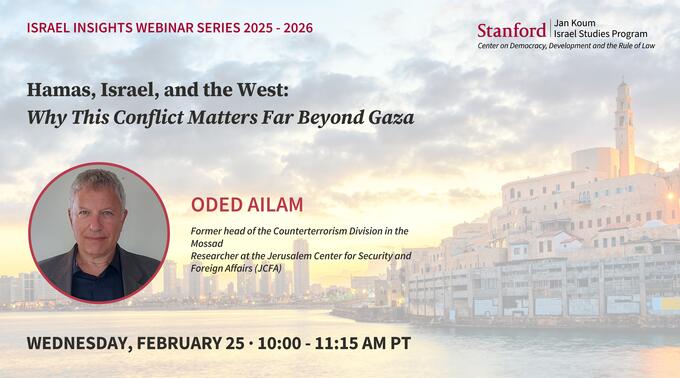
The 2023-25 Hamas-Israel war proved to be not only the longest war in Israel's history but, remarkably, given that Hamas is a non-state terrorist organization, a war with profound regional consequences. As multiple regional and global actors seek to influence the "day after" in Gaza for their own strategic interests, questions about the broader meaning and implications of the Gaza-centered conflict assume greater international importance. The war has catalyzed a series of regional and global shifts, exposing the limits of external actors, testing the resilience of long-standing alliances, and reshaping the strategic landscape of the Middle East. In this timely conversation, moderated by Or Rabinowitz, Oded Ailam, former head of the Mossad’s Counterterrorism Division, will offer an in-depth analysis of how the Hamas-Israel war continues to reverberate across the region and beyond.
ABOUT THE SPEAKER
Oded Ailam is a seasoned security and intelligence expert with a career spanning over two decades in Israel’s elite intelligence agency the Mossad. Among his many high-ranking roles, he was the director of the Mossad’s Counter-Terrorism Center (CTC). After retiring from the Mossad, Ailam transitioned into the private sector, offering security and strategic consulting services. Ailam is frequently invited to lecture at international conferences. His insights are regularly featured on FOX News, CNN, Newsmax, The Washington Post, Newsweek, as well as most of the major European media. Ailam writes regularly in Israel Hayom newspaper and other international outlets and appears regularly on prime-time television in Israel. Ailam is a senior researcher in the Jerusalem Center for Security and Foreign Affairs (JCFA), and an advising analyst to FDD, the Foundation for Defense of Democracies in Washington. Ailam is a graduate of Ben-Gurion University, where he earned a degree in Industrial Engineering and Management. He also founded a company specializing in industrial quality control solutions. He published his first short novel, a bestseller in Israel. He is a writer and contributor to scripts in Hollywood, France, and Israel, bringing his expertise in espionage and security to the world of storytelling.
Virtual Event Only.
Virtual Only Event.
Wednesday, February 25, 10:00 am PT. Click to register.

